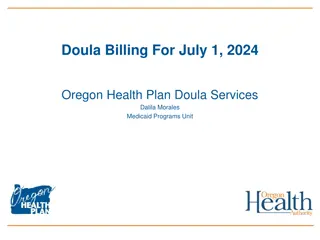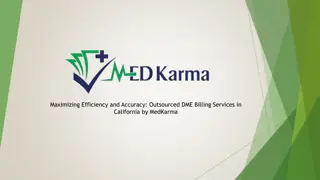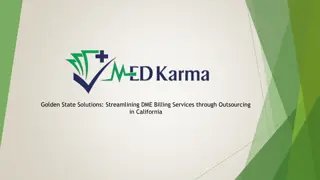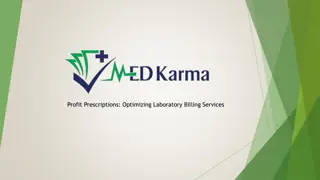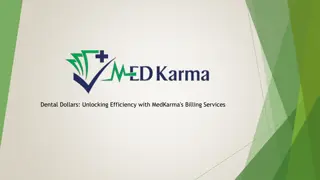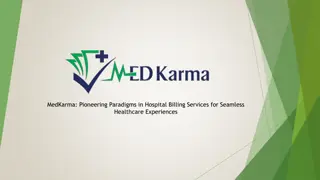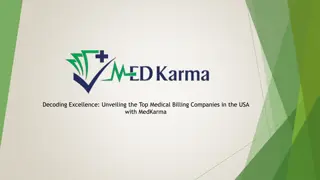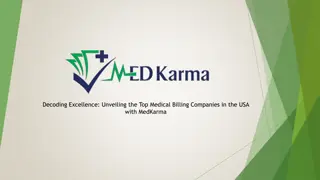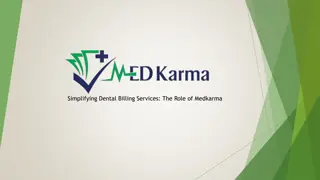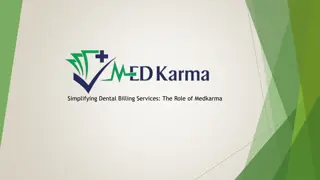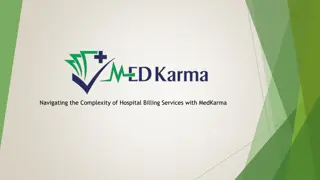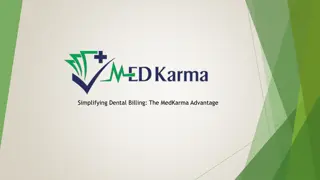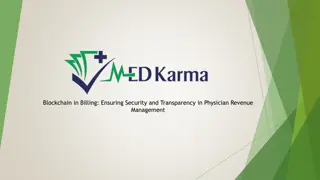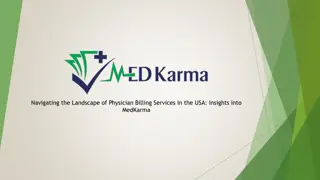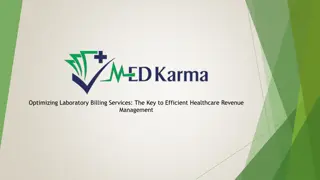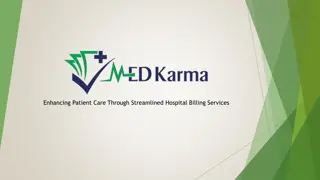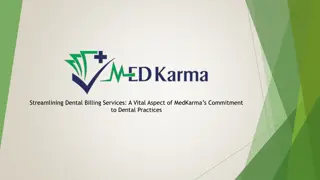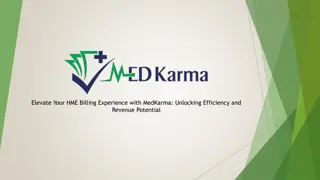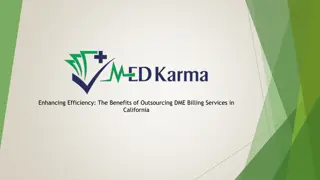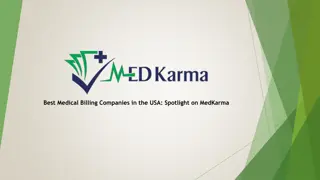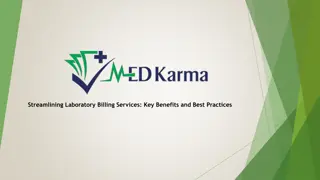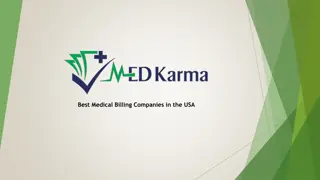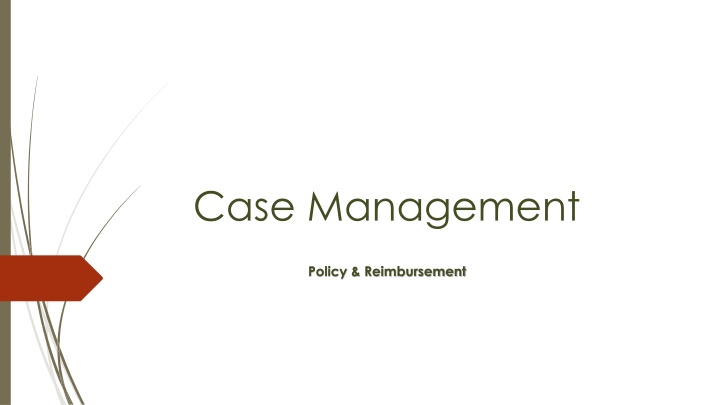
Behavioral Health Case Management: Services and Policies in Oklahoma
Explore the comprehensive behavioral health case management policies and reimbursement guidelines set by the Oklahoma Health Care Authority. Learn about the key components such as needs assessment, service plan development, referral, linkage, advocacy, follow-up, monitoring/support, outreach, and crisis diversion. Discover the essential services provided and those that are excluded for reimbursement under SoonerCare.
Download Presentation

Please find below an Image/Link to download the presentation.
The content on the website is provided AS IS for your information and personal use only. It may not be sold, licensed, or shared on other websites without obtaining consent from the author. If you encounter any issues during the download, it is possible that the publisher has removed the file from their server.
You are allowed to download the files provided on this website for personal or commercial use, subject to the condition that they are used lawfully. All files are the property of their respective owners.
The content on the website is provided AS IS for your information and personal use only. It may not be sold, licensed, or shared on other websites without obtaining consent from the author.
E N D
Presentation Transcript
Case Management Policy & Reimbursement
Behavioral Health Case Management Policy? Oklahoma Health Care Authority https://oklahoma.gov/ohca.htm More Policy and Rules Part 21 Outpatient Behavioral Health Services 317:30-5-241.6. Behavioral Health Case Management
The Big IX 1. Needs Assessment - necessary psychological, educational, medical, and social information for the purpose of individual plan of care development. 2. Service Plan Development Face-to-face meetings with the member and/or the parent/guardian/family member for the implementation of activities delineated in the individual plan of care (service/treatment plan).
The Big IX 3. Referral - When an individual/family is in need of specific resource information (such as a name, phone number and/or address) and can take the information and make the linkage and advocate for themselves. 4. Linkage - When an individual/family is in need of specific resource information, and needs assistance with linking up with that resource.
The Big IX 5. Advocacy - When an individual/family is unable to successfully express their needs and interests and needs assistance with communication to access a specific resource. 6. Follow-up - Follow up with the individual and/or family to help the stay engaged in treatment. 7. Monitoring/Support - monitoring and support related to the individual CM plan of care- assessing progress and barriers, and reassessing goals/objectives.
The Big IX 8. Outreach Outreach with the individual and/or family to help the stay engaged in treatment, appointments. 9. Crisis Diversion - (unanticipated, unscheduled) situation requiring supportive assistance, face-to-face or telephone, to resolve immediate problems before they become overwhelming and severely impair the individual's ability to function or maintain in the community) to assist member(s) from progression to a higher level of care.
Excluded Services SoonerCare Reimbursable behavioral health case management does not include the following activities: (A) physically escorting or transporting a member or family to scheduled appointments or staying with the member during an appointment; or (B) managing finances; or (C) providing specific services such as shopping or paying bills; or (D) Delivering bus tickets, food stamps, money, etc.; or
Excluded Services (E) counseling, rehabilitative services, psychiatric assessment, or discharge planning; or (F) filling out forms, applications, etc., on behalf of the member when the member is not present; or (G) filling out SoonerCare forms, applications, etc.; (H) mentoring or tutoring; (I) provision of behavioral health case management services to the same family by two separate behavioral health case management agencies;
Excluded Services (J) non-face-to-face time spent preparing the assessment document and the service plan paperwork; (K) monitoring financial goals; (L) services to nursing home residents; (M) psychotherapeutic or rehabilitative services, psychiatric assessment, or discharge; or (N) services to members residing in ICF/IID facilities.
Excluded individuals The following SoonerCare members are not eligible for behavioral health case management services: (A) children/families for whom behavioral health case management services are available through OKDHS/OJA staff without special arrangements with OKDHS, OJA, and OHCA; (B) members receiving Residential Behavior Management Services (RBMS) in a foster care or group home setting unless transitioning into the community; (C) residents of ICF/IID and nursing facilities unless transitioning into the community; (D) members receiving services under a Home and Community Based services (HCBS) waiver program.
Procedure Code & Limit Modifier Age Calendar limit (Per month) Contract Type Targeted Case Management LBHP/MA level T1017 HE/HF HO 0-999 12 110 - OPBH Targeted Case Management CMII MA/BA level T1017 HE/HF HN 0-999 12 110 - OPBH Targeted Case Management CMI BA/less than BA level T1017 HE/HF HM 0-999 110 - OPBH
Effective 11/1/2019 As of 11/1/2019 regular outpatient clients are restricted to 12 units per month (rolling year) of behavioral health case management (T1017)
Medical Necessity Criteria Client has been admitted to behavioral health inpatient, crisis unit, mobile crisis or urgent care in the last five years. The ending date for eligibility is five years after the last discharge. A report in PICIS will be available by 9/8/2017 to identify those individuals which meet this eligibility requirement. Any consumer of any age with an Substance Use Disorder service focus listed on their CDC Adults (18+) who are either: (a) enrolled at a certified substance abuse agency and have a substance abuse service focus on the CDC or (b) enrolled in a specialty court program. Eligibility is only maintained while enrolled in those programs. Client is currently homeless, as identified on the CDC as Homeless-Shelter or Homeless- Streets . The Medical Necessity Criteria only applies if currently homeless. Note: If the client meets any of these criteria, but is not identified in the PICIS or MMIS system as such, providers need to submit a PA Adjustment with supporting documentation.
Billing Details If the client meets any of the medical necessity criteria provided above, providers will need to include a GD modifier on the case management claim at the end of the current service. For example, T1017 HEHM change to T1017HEHMGD. Note: If provider bills a claim with a GD modifier and it is later determined that the client did NOT meet criteria, If not corrected within 30 days of payment, claim will be recouped.
BE ADVISED This is specifically for CASE MANAGEMENT services. Any customer follow up, engagement or rehab services are billed on a separate code that will not count against their units. Do not assume your client will not meet criteria for their units to be adjusted. Do not let your agency assume. PACT, SOC/WRAPAROUND, AND HEALTH HOME clients are not effected by these changes at all.
How to continue to help your clients within these new changes Be sure to differentiate correctly what is Rehab and what is Case Management and teach them skills to could elicit themselves being their own advocate and resource guide If certified as a Peer Specialist or Wellness Coach, you can supplement some appropriate and billable sessions through those billing codes
Helpful Links www.odmhsas.org/arc.htm https://oklahoma.gov/ohca.html
OHCA Claims (405) 522-6205 1-800-522-0114

